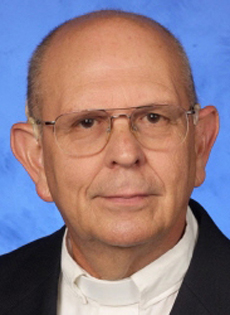
St. Gregory's advice to bishops
Monday, January 20, 2020
*Fr. Eduardo Barrios, SJ
St. Gregory I lived during the early Middle Ages. He was pope from the year 590 to 604, and belongs to the very small group of supreme pontiffs called Great. He deserved that honorary title for the high quality of his pontificate in terms of teaching and governance. Two more popes have been designated as Magnus: St. Leo I and St. Nicholas I. However, unofficially, St. John Paul II is being called Great, as well.
From the large magisterial body of St. Gregory we selected a document titled “Pastoral Rule,” through which we learned about the situation of the high-ranking clergy in the sixth century. The book refers mainly, but not exclusively, to bishops.
Pope Gregory says that no one should come to high office in the Church without first having vast pastoral experience (Part I, 1), including the ascetic experience.
When persecutions ceased with the Constantinian peace, the episcopate began to acquire prestige. Some clergymen lacked divine vocation to greater service but coveted the episcopate for its elevated position.
Coherence between doctrine and practice was needed to lead the Church. Whoever preached a moral doctrine and did not live it, was not fit. Whoever, due to his office, professed holiness but then acted wickedly, would hurt the Church (I, 2).
A worthy bishop must fear prosperity more than adversity. Difficult or adverse times would help him grow spiritually, while he could fall into pride and other weaknesses of the spirit in times of prosperity (I, 3).
A wise bishop cannot take care of everything by himself, because the multiplicity of issues could leave him exhausted. He must focus his energies on solving the most important issues and delegate minor matters.
A priest qualified in doctrine and virtue would be acting selfishly if he rejected the episcopate to live comfortably and unconcernedly in the monastery (I, 5). God gives talents for the service of his people and they should not be hidden under the guise of false humility. Unwanted responsibilities must be accepted, as St. Peter did when Jesus told him that if he loved him, he had to tend his sheep (cf. Jn 21, 15-17).
The prelate is obliged to give witness of a holy life, being as if dead to the passions of the flesh. He should never do something that he would later be ashamed of (I, 10). Whoever was controlled by any of the vices that lead to eternal damnation should never accept prelature (I, 11).
He who is charged with shepherding the Church must be pure even in thoughts (II, 2).
Far from engaging in leisure, the model pastor must be the first to serve (II, 3). However, he should not allow himself to be absorbed by pastoral and administrative duties to the point of having no time left for nourishing his spiritual life. It is necessary to know how to combine action and contemplation.
The prelate should exercise caution when remaining silent and when speaking. He should never speak when he must be silent, nor remain silent when he must speak (II, 4). It takes a lot of discernment to speak and remain silent opportunely, for the good of the flock entrusted to his care.
The highest-ranking leader of the local church should not try to please the people by saying what many want to hear, but should preach what is best for them to hear. He must be faithful to the truth and not seek popularity. When he is demanding in matters of sanctity, the congregation must understand that he does so motivated by his love for them (II, 8).
He must be vigilant not to disguise his own and other people's faults as virtues. The greedy frequently claim to be frugal; the wasteful think they are generous; the indecisive think they are prudent; the timid think they are humble. It is very common to present vice as virtue (II, 9).
The one in authority should not go about correcting everything. At times he has to overlook things and be patient until circumstances favor his intervention. Given that mistakes occur more often due to ignorance than malice, many times it is teaching, rather than correction, that is needed the most (II, 10).
If a parishioner informs the prelate that he is neglecting his pastoral duties, he should examine himself. If it is true, he must accept the correction with the same humility that St. Peter received the admonition from the apostle Paul (Cf. Gal 2, 11-14).

